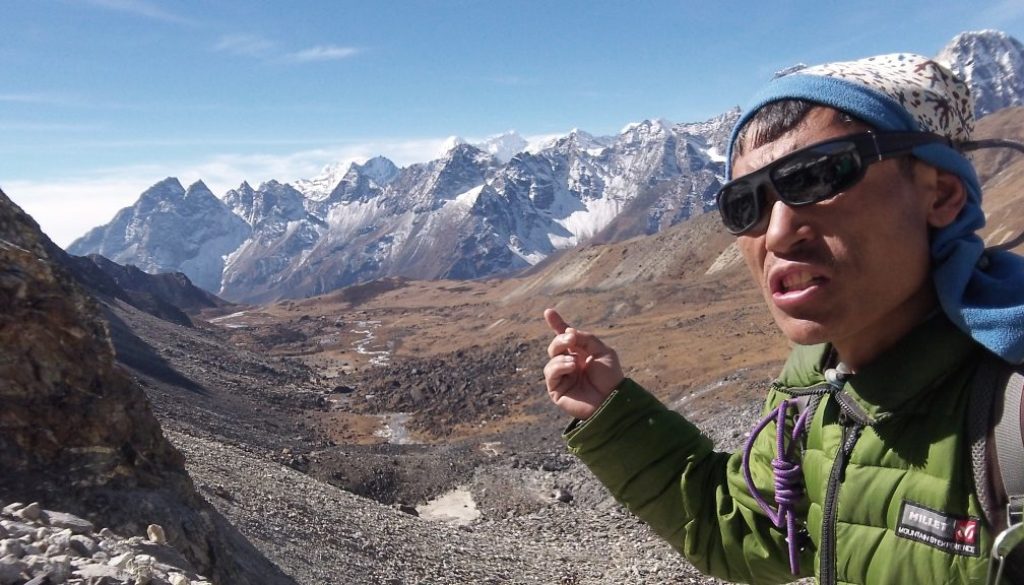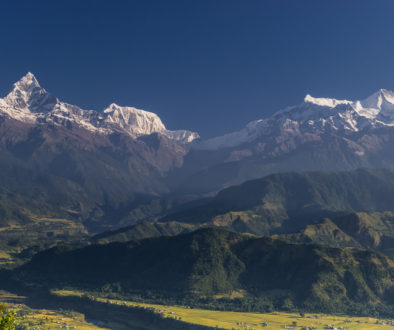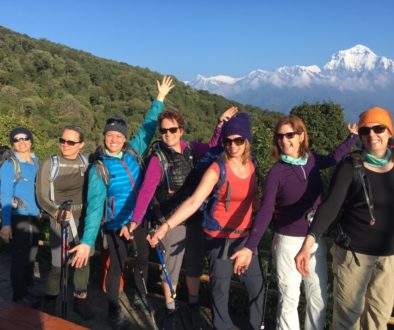What training is required to trek to Everest Base Camp?
Trekking to Everest Base Camp is a fantastic experience which provides a high altitude strenuous trek so you will need to have a good level of fitness. If you don’t do any cardiovascular exercise, we would recommend that you have a training plan to increase your fitness levels prior to departure.
It is important that you can walk up hill relatively easily without becoming too breathless. However, you will be going very slowly on the trek to allow your body to acclimatise and there will be plenty of opportunity to relax, and take in the fantastic views. As you get higher, you will feel more breathless on the trek as it becomes increasingly difficult with the lack of oxygen. There is nothing you can do in the UK to acclimatise unless you visit specialist facilities where you can train indoors in an oxygen-depleted atmosphere.
 It is advisable that you train for the ascents by walking up hills. This will make it easier for you on the trek, increase your leg strength and improve your general fitness levels. You will also be carrying a day pack on your ascent with your requirements for the day, such as, extra layers of clothing and your food and drink. It’s important that you train using a rucksack so that you feel comfortable carrying the additional weight. Occasionally, it’s beneficial to train carrying a rucksack that’s heavier than what you think you’ll be carrying on the trek to improve your fitness. It’s worthwhile testing your rucksack before you go so that it fits properly, does not cause any chafing or soreness and that you feel comfortable carrying the additional weight. The same goes with boots, make sure that you have worn your boots in to avoid any rubbing and that you feel they provide adequate support.
It is advisable that you train for the ascents by walking up hills. This will make it easier for you on the trek, increase your leg strength and improve your general fitness levels. You will also be carrying a day pack on your ascent with your requirements for the day, such as, extra layers of clothing and your food and drink. It’s important that you train using a rucksack so that you feel comfortable carrying the additional weight. Occasionally, it’s beneficial to train carrying a rucksack that’s heavier than what you think you’ll be carrying on the trek to improve your fitness. It’s worthwhile testing your rucksack before you go so that it fits properly, does not cause any chafing or soreness and that you feel comfortable carrying the additional weight. The same goes with boots, make sure that you have worn your boots in to avoid any rubbing and that you feel they provide adequate support.The trek to Everest Base camp is over a number of days so in order to have the most enjoyable experience, your training should ensure that you are fit enough to be able to walk over consecutive days for up to 5 or 6 hours each day. A good training programme will enable you to build up your stamina and endurance to be able to keep going. Your calf muscles will probably be painful on the ascents if you are unfamiliar with walking in the hills. On the descents your quads and knees may ache. The more training you do, the more conditioned you’ll become and therefore increasing your likelihood of success.
 It’s important that you familiarise yourself with walking on rocky paths and it’s recommended that you take a few walks in the UK mountains so you have confidence in your ability. Mountains in Mind offer training weekends with like-minded individuals in the UK prior to departure where we would be happy to answer any questions, discuss your training plan and it’s also an opportunity to review your kit requirements.
It’s important that you familiarise yourself with walking on rocky paths and it’s recommended that you take a few walks in the UK mountains so you have confidence in your ability. Mountains in Mind offer training weekends with like-minded individuals in the UK prior to departure where we would be happy to answer any questions, discuss your training plan and it’s also an opportunity to review your kit requirements.




